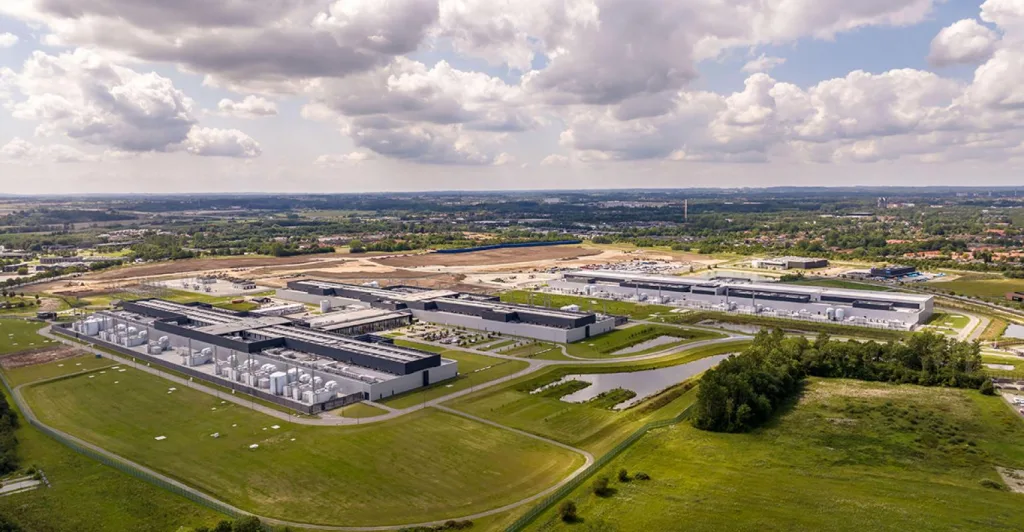
Resilient Growth: The Continued Expansion of UK Data Centres in the Post-COVID Era

The significant economic growth of data centres since the onset of the COVID-19 pandemic can be attributed to several key factors. These centres have become essential in supporting the expanded digital infrastructure required by the shift in global work, entertainment, and social habits. Here’s a detailed examination of why data centres have continued to experience robust economic growth:
1. Increased Reliance on Digital Services
Remote Work and Education
The pandemic has drastically accelerated the adoption of remote work and learning. Organisations and educational institutions rapidly transitioned to online platforms, driving a surge in demand for cloud services and, by extension, data centres. These facilities are crucial in managing and processing the vast amounts of data generated by video conferencing, virtual classrooms, and remote collaboration tools.
E-commerce and Digital Transactions
Lockdowns and social distancing measures have led to a boom in e-commerce. Consumers turning to online shopping have prompted businesses to enhance their digital presence, requiring more robust data handling and storage solutions provided by data centres.
Entertainment and Streaming
With more people staying home, there has been a significant increase in the consumption of digital entertainment such as streaming movies, music, and gaming. These services rely heavily on data centres for content delivery and latency reduction, further driving the growth of this sector.
2. Advancements in Technology
Cloud Computing
The shift towards cloud computing has been a fundamental driver for data centres. As more businesses migrate their operations to the cloud, the demand for data storage and processing power increases. This shift has necessitated the expansion of existing data centres and the construction of new ones.
Artificial Intelligence and Machine Learning
AI and ML have seen accelerated deployment across various industries, from healthcare diagnostics to automated customer service. These technologies require significant computational power and data storage, tasks that data centres are well-equipped to handle.
Internet of Things (IoT)
The IoT technology trend has resulted in millions of interconnected devices, from smart home products to industrial sensors, all generating data that need to be processed and analysed, often in real-time, further underscoring the importance of data centres.
3. Infrastructure Resilience and Security
Enhanced Security Needs
As cyber threats have become more sophisticated, the need for secure data storage has never been more critical. Data centres provide a controlled environment with advanced security protocols, making them ideal for handling sensitive information.
Reliability and Uptime
The expectation for 24/7 service availability has placed additional pressure on organisations to have reliable infrastructure. Data centres are designed to ensure high uptime through redundant systems and backup power supplies, making them indispensable in today’s digital economy.
4. Geopolitical and Regulatory Factors
Data Sovereignty
The increasing importance of data protection regulations (like GDPR in Europe) requires companies to keep customer data within specific geographic boundaries. This regulatory environment has spurred the growth of local data centres around the world.
Investment Incentives
Many governments have recognised the importance of digital infrastructure and offer incentives for data centre construction, such as tax breaks or subsidies. These incentives have lowered the barrier for new data centre projects, encouraging further investment.
5. Environmental and Sustainability Concerns
Green Computing
Data centres consume a significant amount of energy, leading to increased scrutiny over their environmental impact. The industry’s response has included investing in more energy-efficient technologies and renewable energy sources, which has not only helped reduce operational costs but also improved public perception and compliance with regulatory standards.
The COVID-19 pandemic has catalysed a paradigm shift in how societies function, underscoring the critical role of digital infrastructure. Data centres, as the backbone of this infrastructure, have naturally seen significant growth, driven by the increased digital activity, technological advancements, regulatory changes, and a focus on sustainability. As the digital landscape continues to evolve, data centres are likely to remain a crucial element of the global economy.